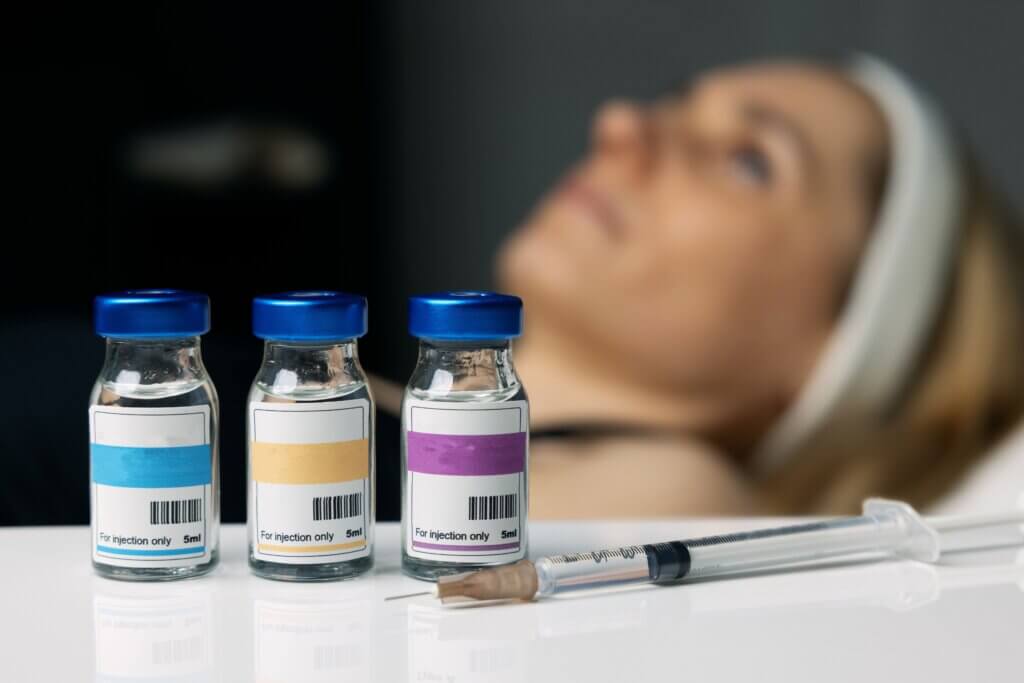While many clinics and practitioners may be frustrated that this causes additional work, we at Bodyvie couldn’t be more supportive of these changes.
Why is this important?
While we pride ourselves in our experience, qualifications and professionalism, it is unfortunate that the UK aesthetic industry has been largely unregulated, leading to some clinics taking advantage of vulnerable individuals or performing in unhygienic environments or without relevant experience.
While non-surgical procedures are significantly safer than surgical aesthetic procedures, it’s still vital that consumers and clinics alike recognise how important it is that qualified, experienced aesthetic practitioners or doctors carry out procedures.
It is the Government and industry’s responsibility to ensure that all aesthetic procedures are administered under the best circumstances and by the best practitioners.
How did this come about?
The MPs on the Health and Social Care Select Committee published their concerns in the Health and Social Care Select Committee’s new report, which is labelled ‘The Impact of Body Image on Mental and Physical Health.
The report concluded that a rise in body dissatisfaction is driving the aesthetic market, which has remained largely unregulated until now.
What did the report contain?
There were some key recommendations to the Government, which were highlighted by the report. This included the idea of introducing a new licensing regime by July 2023. This licensing regime includes making dermal fillers prescription-only products, raising standards on training for administering practitioners and implementing a two-part consent process. This latter point addresses the patient’s mental and physical health before allowing a non-surgical cosmetic procedure to go ahead.
This means that patients prone to mental health illnesses, such as body dysmorphia, will be protected. Patients with health issues that may worsen due to these procedures will likewise be seen and cared for in a way that benefits their overall well-being.
The report also made suggestions that focus on protecting vulnerable individuals through advertising and online publications. The committee intends to work closely with the Advertising Standards Authority to encourage advertisers and influencers to embrace transparency, not doctor images. The intention is to establish a logo system whereby commercial photos will have to highlight all digital alterations, making it clear when filters, airbrushing and photoshopping have occurred before images are published. They also prioritise the diagnosis and treatment of body dysmorphic disorder.
According to the Health and Social Care Committee chair, Jeremy Hunt, “The Government must act urgently to end the situation where anyone can carry out non-surgical cosmetic procedures, regardless of training or qualifications. We heard of some distressing experiences – a conveyor belt approach with procedures carried out with no questions asked, procedures that have gone wrong and the use of filthy premises.”
The Joint Council for Cosmetic Practitioners also contributed evidence to the committee. David Sines, Chair Professor, said, “We look forward to continuing our engagement with the Government and health care regulators during the forthcoming months to realise the key objective of embedding patient safety and public protection for members of the public who elect to engage with non-surgical procedures within the context of national enforceable legislation.”
Conclusion
While we understand this will put pressure on many aesthetics practitioners and clinics, we fully support this move. Regulating the industry and protecting our vulnerable patients should always be a priority of any aesthetic clinic.
We look forward to a future where aesthetic procedures help improve all patients’ mental and physical well-being and where practitioners are regulated to protect all consumers.
An aesthetic procedure should always be a positive move that helps patients rather than taking advantage or causing mental harm. We all must work together to ensure an ethical, supportive and professional aesthetics industry.
At Bodyvie, we always ensure that your aesthetic procedures are completed by only the most experienced and qualified practitioners in the UK.















With an industry growing as fast as this one, it is important to have regulations that protect the well-being of patients, especially pertaining to mental health issues that could have dire consequences. To see such a clinic taking this stance on such a new and sensitive matter truly gives it’s clients confidence